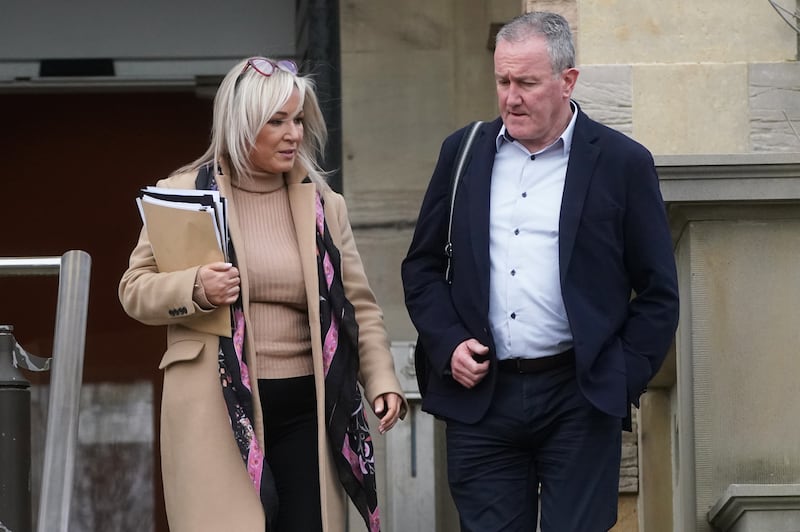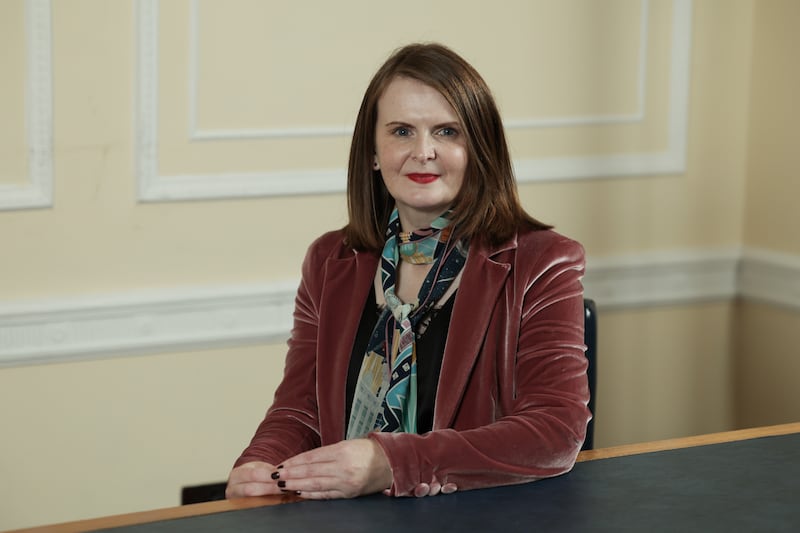Seeing the bigger picture can be difficult in politics. The demands to improve public services and sort out problems quickly can often distract from the longer-term reforms that are required.
One of the least commented upon aspects of Sinn Féin’s ministerial picks is the fact that finance, economy and infrastructure are all big-picture departments – which means that quick wins are hard to come by, but the long-term opportunities to deliver meaningful reform are there in spades. Not only can they reshape the Northern Ireland economy, but they can shape an entirely new economic debate that has the potential to change how we view ourselves.
These opportunities can lie ahead for Sinn Féin. The only problem is that all of this is long-term and not something that voters will see any benefit from quickly. If the public wants easy results, then for Sinn Féin, the next three years will be a hard slog if they want to do the job properly. The only thing that can mess up achieving a substantial legacy is if the party prioritises quick wins over proper reform.

Papering over the cracks in our economy and public services has got us into the dire situation that we are in today. If we always do what we have always done, we are always going to get what we have always got. This is the argument Sinn Féin needs to make repeatedly when either members of the party or the public question what they are doing with their respective departments.
In finance, they have what on paper looks like the ultimate poisoned chalice with revenue raising and cuts for the next number of years. That’s mixed in with a Fiscal Council warning of a potential financial cliff edge approaching in 2027, which unfortunately for the current executive coincides with the date for the next assembly election.
- First Minister rejects charge Executive unwilling to make hard calls on financeOpens in new window
- Opinion The Irish News view: Money matters - Stormont budget must match north’s need before revenue-raising is contemplatedOpens in new window
- London wants proof that Stormont can take the tough decisions – Newton EmersonOpens in new window
That’s the bad news. The good news for Caoimhe Archibald is that in crisis lies a huge opportunity and that is to lead the discussion about how Northern Ireland is funded from Westminster and reset the debate about devolving fiscal powers. Not only can she argue for more powers, but she should spell out how Sinn Féin would seek to use these to raise more revenue and what that would be used for.

Then for economy, Conor Murphy has already started setting out his agenda for some of the shifts he would like to see in the coming years. As with finance, talking about changing the focus of Invest NI will not be something voters will pay huge amounts of attention to, nor is the funding model for higher and further education something that will dominate a current affairs programme. However, if both are done right there is an economic boom waiting to be had.
But it will not happen if old norms are clung onto around tuition fees, and we do not begin shifting our focus towards our technical colleges. Murphy has signalled he is open to new ideas and approaches; he needs the space to develop these properly and a recognition that ending problems such as the economic partition between Belfast and the west of Northern Ireland will take time to achieve.
Papering over the cracks in our economy and public services has got us into the dire situation that we are in today. If we always do what we have always done, we are always going to get what we have always got
Lastly, infrastructure is another department that only has long-term problems to be solved. John O’Dowd has big-ticket items such as the A5 to get underway and the Narrow Water Bridge. There are also wider transport issues including improving our cycling network and supporting Translink to expand projects such as the Glider. This requires resources beyond what Stormont has to give, which also gives him a big role in arguing for more revenue and fiscal levers.
For Sinn Féin, the big picture is going to have to be part of their narrative for the next three years. Their ministerial team is probably one of the most able that the party has produced since the Good Friday Agreement.
Devolution needs to be reset and renewed if we want to meet the public policy challenges that we face. Policy is what this executive will be judged on, not symbolism. They need time to get this right, and time will tell whether the politics of being seen to deliver quickly will allow them to achieve the big reforms.








